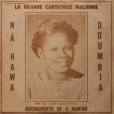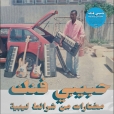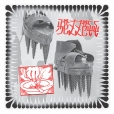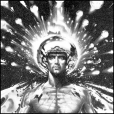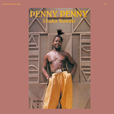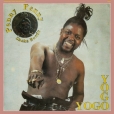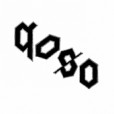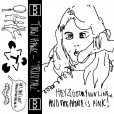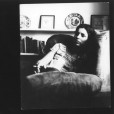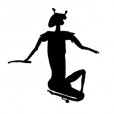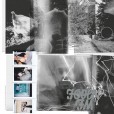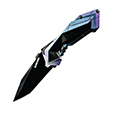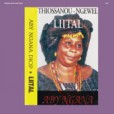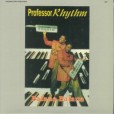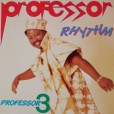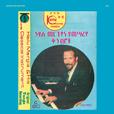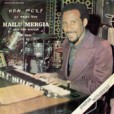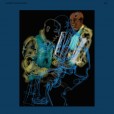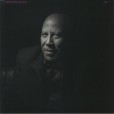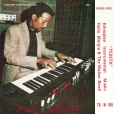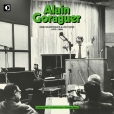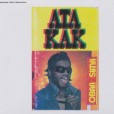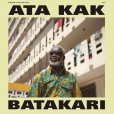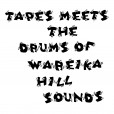Your basket is empty

Beautifully direct Wassoulou songs by the twenty-year-old accompanied only by N’Gou Bagayoko on acoustic guitar.
A mix of overlooked gems and local boomshots from the cassette tape scene in Libya, during the late 80s to early 2000, when independent artists relied on makeshift home studios or travelled abroad to record in Tunisia and Egypt. A judicious mash-up of boundary-pushing sounds which reflects this precariousness and nascency; also the political and cultural crossroads at which Libya found itself. North African rhythms meet Arab melodies and deep African roots. Disco and house run into gritty pop. Reggae courses through, with an unmistakable Libyan twist — not just musically, in the slowed-down cadence of traditional shaabi beats, but also culturally, taking to heart its outernational message of proud, defiant self-awareness.
Assembled by Habibi Funk with personality and love, as per; with a 32-page booklet. Another winner.
Last few box sets!
Crafted, varied EP from Kenneth Lay and Jason Carr, out of the Metasplice milieu in Philly. A couple of ant nests, a droner with an mbalax tic, and a monster-crunchy, sun-up soundscape. Boot cyan lean.
TTT TTT TTT TTT TTT TTT TTT TTT TTT TTT TTT TTT TTT TTT TTT TTT TTT TTT TTT TTT TTT TTT TTT TTT TTT TTT TTT TTT TTT TTT TTT TTT TTT TTT TTT TTT TTT TTT TTT TTT TTT TTT TTT TTT TTT TTT TTT TTT TTT TTT TTT TTT TTT TTT TTT TTT TTT TTT TTT TTT TTT TTT TTT TTT TTT TTT TTT TTT TTT TTT TTT TTT TTT TTT TTT TTT TTT TTT TTT TTT TTT TTT TTT TTT TTT TTT TTT TTT TTT TTT TTT TTT TTT TTT TTT TTT TTT TTT TTT TTT
The one-hundredth Trilogy!
Hats off to an amazing, uncompromising run of killer music and lavishly brilliant artwork. Bangers and magic like dirt.
21 gun salute.
No-shame housey Tsonga-disco and hands-in-the-air rave banged out on Korgs and Ataris in 1994 South Africa. It sold tons, rocking stadiums from Liberia and Sierra Leone to Namibia and Mozambique.
Rrrrufff and gruff EP by the In Paradisum old boy. Better humoured, nervier and more reined-in for his long break. Ace.
‘Just over half an hour of Luke Wyatt nattering — talking over, against, and to himself — interspersed with slyly deployed SFX, and quotes from his own musical recordings. A wild, uncannily cohesive, funny-sad excursion, issuing from a childhood memory, and somehow taking in the ’86 Mets, WIlliam Rehnquist, and Boy Scout regalia, amongst much else, in a hilarious, poignant affirmation of the spiritual prequisite of self-expression.’
Massive bounce to the ounce on the A-side, guaranteed to boing a dancefloor into a vibrational mess.
Four honed earhole sluicers, on the flip.
Bumpin’ citizen JFM knocks back some bleep before trumping his FXHEs with two sides of rough, get-loose house like we like it. Warmly recommended.
Bracing portions of the screaming abdabs dressed as naked, hooligan machine-funk — fizzing, stomping, juddering and going mental in the furnace of high noon like whizzed-up children of the hydra’s teeth.
Throughout the 1980s and 1990s, Diop was celebrated in Senegal for her taasu, a form of oral poetry spoken call-and-response by griot women to the rhythmic accompaniment of sabar and tama drums. Then, in 1994, she dropped this incendiary combination of taasu and her own stripped, super-charged conception of mbalax…
Mid-nineties kwaito by Thami Mdluli (veteran of chart-toppers Taboo and CJB, and in-demand producer of the likes of Sox and Sensations).
Tasty, infectious rhythms and synth-work — if the singing is a bit Black Box — with an up-for-it, DIY energy and self-identity encouraged by the momentum of the liberation struggle in this period. “Once Mandela was released from prison and people felt more free to express themselves and move around town, kwaito was becoming the thing,” says Thami.
It’s a one-man-band evocation of the traditional accordion sound of his youth, adding a Moog, Rhodes and beat box. Light and fleet-footed, but questing and utterly heartfelt.
Switched-on Ethiopiques, refreshing and lovely as anything. No doubt insufficiently solemn and inauthentically-authentic for World Music plod, but hotly recommended by us.
Taking a break from cabbing duties back home in Washington DC, for his first LP in fifteen years. Ethiopian standards and originals; his unmistakable melodica, accordion and keys, in the same double-bass-and-drums setting as recent live shows.
A bonkers, irrepressible amalgam of highlife, Twi rap, funk and disco, put over with the passion of a Prince record and the lo-fi charm of early Chicago house music.
The original cassette — self-released in Ghana and Canada in 1994 — was the inaugural post on the ATFA blog.
This started out a couple of years ago as a grounation drumming session above the old headquarters of the Mystic Revelation Of Rastafari, in Wareika Hill, Kingston, JA. Four funde, a repeta and a bass drum. Back in London, contributing flute and guitar, Kenrick Diggory unbottled the deep rootical psychedelia and sheer awe of Hunting — the Keith-Hudson-versus-Count-Ossie wonder of the world — and Tapes added electronics, a shot of Drum Song… and a giddily intense binghi dub.
